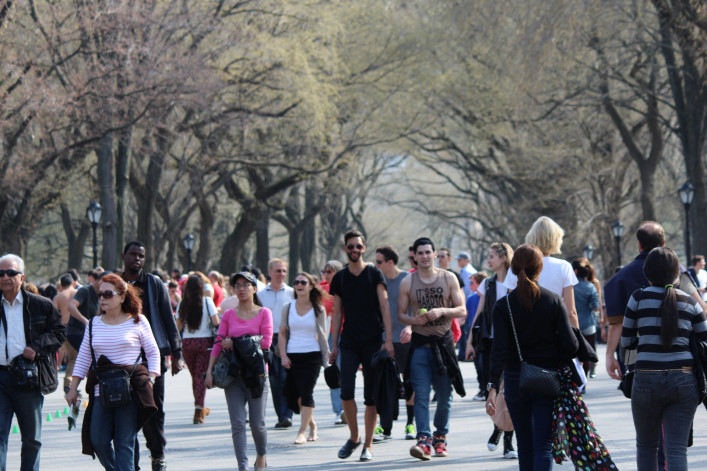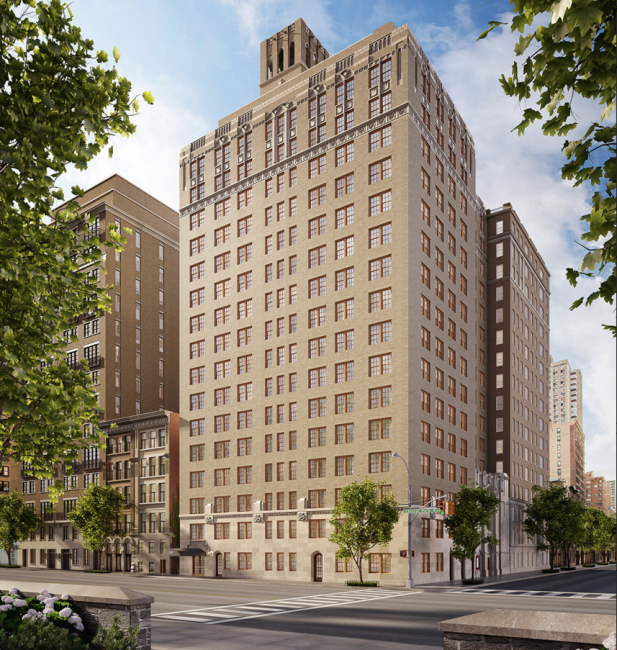Reserving park space for a fee: It's happening in SF, but what about NYC?
San Francisco's Recreation and Parks Deparment is test-driving a new program that allows people to reserve sections of a public park, reports SFist, a development some locals find divisive and unfair. The 16-acre Mission Dolores Park is one of the city's most beloved green spaces, as well as at the edge of a rapidly gentrifying neighborhood. (See this San Francisco Chronicle story for context on how the Mission District has been transformed.)
Under the new reservation system, parties of 25 people and up book space through an online picnic application; groups under 50 must pay a fee of $33, and groups between 51 and 100 pay $66. There's also a required (but refundable) security deposit of $200 for such gatherings. Locals are already trying to fight the program via a Change.org petition, which criticizes the privatization of public park space and states that a reservation system "disenfranchises residents and further fractures the already fragile balance of the Mission's cultural ecosystem."
So how does NYC compare when it comes to cordoning off sections of public parkland for those willing to pay? The city Department of Parks and Recreation requires that New Yorkers get permits for any gathering or activity of more than 25 people; the permit fee is $25, and the Parks Department needs 30 days to process it. For small-scale events—say, a birthday celebration or a dodgeball game—there are no other costs, but additional fees and other pemits may be necessary for larger special events, like concerts, fundraisers, and weddings. For the latter, some parks offer package deals; for a weekend wedding in Prospect Park's Boathouse, for instance, expect to pay $5,000 to reserve the picturesque space.
The criticism voiced by some SFist commenters—that reserving private corners of parks goes against their intended use as public spaces—is understandable. But it also makes sense that the NYC Parks Department would need some system in place to keep track of land usage, given its vastness: There are 30,000 acres of parkland in New York, versus 3,500 in San Francisco.
Crystal Howard, director of media relations for the Department of Parks and Recreation, explains that the system helps staff ensure that there aren't any conflicting activities within the park. "Our reservation system is necessary to ensure that everyone has a fair chance at use, and that their use is regulated properly, and up to city and park standards," Howard says. A similar idea may be behind the Dolores Park system, which lets groups hold three separate picnic areas in a popular park where space is scarce.
Plus, NYC's reservation system skirts one of the troublesome aspects of Dolores Park's new program, which currently allows for bookings to be made online only. SFist notes that this could disenfrancise residents who lack internet access in an increasingly tech-centric city, though a parks rep the blog spoke to said they'd also help people request permits over the phone. In New York, permits can be applied for either online or in person at borough offices, and the Parks Department emphasizes that the base $25.00 fee covers administrative costs, and is not a payment for use of the park itself.
New Yorkers seem comparatively unfazed about paying for their slice of park space (and one wonders how many bother to go through the permit process, and instead just hash out park usage in real time with their fellow city dwellers). It may be best not to ignore the system, though. Howard notes: "Occasionally, we will get notification from our friends at other agencies who hear about events and shoot them our way to ensure they have the necessary permits."
For now, our main hometown park controversy remains what to do about the Central Park carriage horses, which Mayor de Blasio has yet to eliminate, despite campaign promises.
You Might Also Like


























